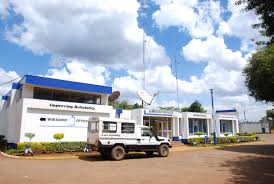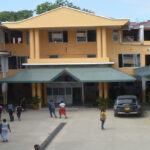A temporary but significant disruption at the Kigoro Water Treatment Plant has caused widespread water shortages across Nairobi, affecting households, businesses, and essential services. The Nairobi City Water and Sewerage Company (NCWSC) confirmed on Thursday that the plant is experiencing technical challenges that have sharply reduced water production, triggering lower pressure and intermittent supply across several parts of the county.
The disruption, which began earlier in the week, has prompted immediate intervention by technical teams from both NCWSC and the Athi Water Works Development Agency (AWWDA). Engineers from the two agencies are working round the clock to address the fault, with NCWSC projecting full restoration of normal water output by 6:00 a.m. on Saturday, 22 November 2025.
In its statement, the utility company acknowledged the scale of the service interruption and urged the public to exercise patience as repair crews work through the night. “Our technical teams are working jointly and around the clock to resolve the issue,” NCWSC said, adding that the disruption had already translated into reduced water pressure and, in some areas, complete supply interruptions.
The Kigoro Water Treatment Plant, located in the Upper Gatanga region, is one of Nairobi’s critical water supply points, serving large sections of the city through the Northern Collector infrastructure. Any disruption at the facility typically creates ripple effects across Nairobi’s distribution network, leading to immediate pressure drops in residential areas and commercial zones.
Residents in affected areas on Thursday reported long hours without water, especially during peak consumption periods. Businesses that rely on stable water supply — including hotels, restaurants, laundromats, small manufacturers, and car-wash operators — expressed concern about the financial implications of the unexpected outage. Water vendors also reported a surge in demand as customers sought alternative sources of clean water.
While NCWSC did not specify the exact nature of the technical problem at the plant, the episode adds to a growing list of operational challenges facing the water utility as Nairobi’s demand continues to outstrip supply. The city currently requires an estimated 870 million litres of water daily against production levels averaging 550–600 million litres, leaving a persistent shortfall that worsens during system breakdowns.
In its advisory, NCWSC urged customers to adopt water conservation measures during the repair period. Residents were specifically encouraged to use water sparingly, prioritise essential needs, and store supplies where possible. “NCWSC sincerely apologizes for the inconvenience caused and appreciates the understanding and cooperation of the public during this period,” the company said.
Sector analysts note that such disruptions highlight ongoing structural issues within Nairobi’s water infrastructure — including ageing pipelines, maintenance backlogs, and limited redundancy within the treatment network. Though the Kigoro plant was commissioned to help boost Nairobi’s supply, its integration remains vulnerable to technical failures and power fluctuations.
AWWDA and NCWSC have been jointly undertaking upgrades and expansions across Nairobi’s water systems, including plans under the Northern Collector Phase II project. However, implementation timelines have been affected by funding constraints, procurement processes, and the need for coordinated urban planning given the city’s rapid population growth.
As Nairobi continues to urbanize at one of the fastest rates in Africa, consistent water supply has become a central concern for both residents and investors. Real estate developers, industrial operators, and hospitality businesses have increasingly cited water reliability as a key determinant of operational costs and property value. Prolonged or recurrent disruptions often lead to increased dependence on expensive alternatives such as tankers and boreholes.
NCWSC’s quick acknowledgment of the disruption and commitment to a 48-hour repair window indicates an effort to maintain transparency and manage public expectations. The company encouraged customers with urgent concerns to contact its customer care centre via its toll-free line (0800 724 366), assuring the public that all possible measures are being taken to stabilize the system.
For now, residents across the affected neighbourhoods — which typically include parts of the CBD, Eastlands, Kasarani, Thika Road corridors, Kiambu-linked estates, and sections of Westlands depending on the severity of reduction — have been advised to plan for intermittent supply until the plant returns to full operation.
As the city awaits restoration, attention remains focused on the capacity of NCWSC and AWWDA to deliver lasting solutions to Nairobi’s recurring water supply disruptions. The current event, while temporary, underscores the broader need for enhanced investment in treatment capacity, system redundancy, maintenance protocols, and long-term water security planning.





